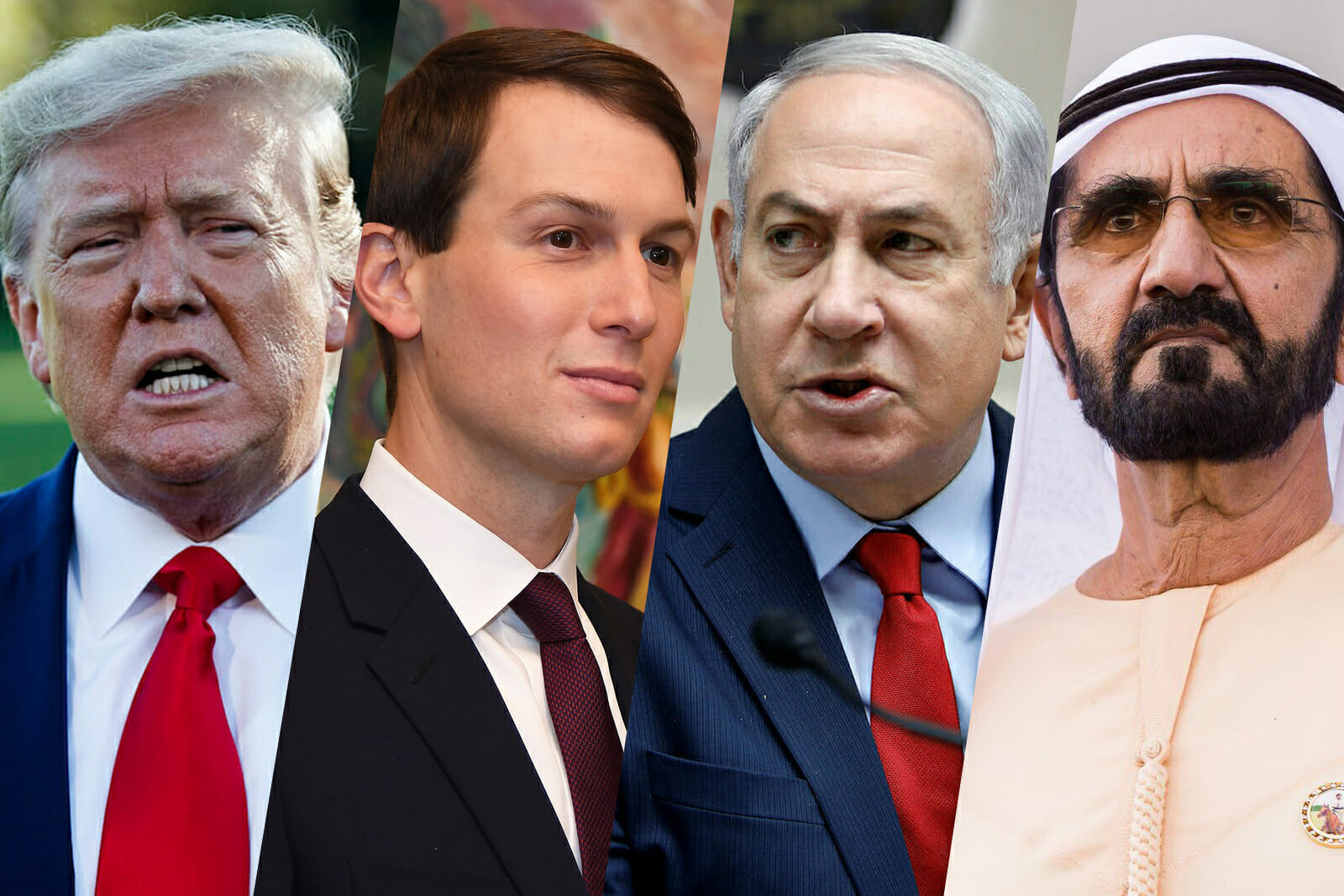
The Binding of Isaac: Will the Abraham Accords Provoke More Conflict than they Can Prevent?
In the decades following the establishment of an independent Israel in 1948, the Biblical narrative surrounding Abraham’s would-be sacrifice of his own son in the name of God played a central role in the young nation’s moral development. This “Binding of Isaac” traditionally represented a symbol of self-sacrifice, one’s willingness to die in the name of their homeland. However, as critics of the Zionist movement began to gain traction, a simple question was posed to Israeli leadership: Whose sacrifice was it?
If you are prepared to sacrifice someone other than yourself, is this still an act of altruistic devotion, or simply murder? When it comes to the advancement of your homeland, is there even a difference?
The past several years have marked the need for political leaders to make sacrifices, especially in the United States and Israel. Characterized primarily by turbulence, the rule of former President Donald Trump and Prime Minister Benjamin Netanyahu brought a new era of diplomacy to the doorstep of the Arab world. The only mystery that remained was how the Arab world would respond. On this backdrop falls the Abraham Accords and subsequent normalization treaties between Israel and four Arab states. More are likely to follow if the Biden administration uses the Abraham Accords as a template.
The UAE, Bahrain, Sudan, and Morocco have taken a truly monumental step by breaking away from the Arab Peace Initiative of 2002, which stipulated that broad normalization with Israel would only come after an agreement was made to end the occupation of Palestinian territories. Only time will tell if they were taking a step forward or backward. Analysts and officials, on the other hand, didn’t hesitate to applaud what the former Trump administration was calling “The deal of the century.” Were they right? Did these so-called peace deals, “…realize the vision of a Middle East region that is stable, peaceful and prosperous, for the benefit of all States and peoples in the region,” as promised? Historians will still be trying to answer these questions decades from now. And yet, the seeds of conflict have seemingly already been planted.
The promises of prosperity will surely be fulfilled for the politicians and corporations that opt into such an agreement. The outlooks of financial gain through cooperation with an economic powerhouse like Israel are impossible to deny: “Israelis are avid investors, consumers, and travelers and a number of hi-tech companies already cooperate with partners in the UAE. Deals span from CCTV, phones, and critical infrastructure surveillance to upgrades of the UAE air force fighter aircraft. This area of cooperation will no doubt flourish further, offering the Emirates access to cutting-edge technology. Expanding its highly developed service and technology sector through Israeli collaboration will benefit the country’s economy and the continued incentives that high-skilled foreign workers have to flock to its job markets.”
This hasn’t gone unnoticed by Arab states, however. It never has. Commercial technologies, namely those concerning irrigation and water management, have been a stepping stone for facilitating ties between Arabs and Israelis since the early 1990s.
While prosperity comes without question, peace and stability are far from guaranteed. Yes, the normalization treaties come with a less-than-guaranteed promise that Israel will temporarily suspend the planned West Bank annexation originally proposed by Trump’s January 2020 peace plan. What remains unknown is how long this temporary promise will hold. In the words of Jared Kushner, the principal architect of these deals, “Somewhere between a long time and a short time.” What this means, as clarified by Netanyahu, is that the annexation is still planned. It will mostly be up to the Biden administration, and any subsequent administrations, to decide whether or not that plan is executed.
With all this being said, it should already be apparent that Palestinian voices were not considered throughout these negotiations in any substantive way. Indeed, life under Israeli occupation has only gotten worse. The demolition of Palestinian homes and the construction of illegal settlements more than doubled during Donald Trump’s presidency. This is particularly the case after he reversed U.S. policy by recognizing them as legitimate.
This conflict insecurity extends far beyond Palestine, however. By initiating and rushing these negotiations, the United States pushed itself into a corner and the Arab world was expecting to receive their concessions. Some were minor and predictable. A Bahraini anti-government militia was designated as a terrorist group by the State Department. Debt relief, bilateral aid, and protections from terrorism-related lawsuits were authorized for Sudan. The big winners, however, are most certainly the UAE and Morocco.
Emiratis and Israelis have a very long, mostly covert history with each other. The two have shared intelligence, weapons technology, and surveillance software while commercial and diplomatic ties were kept away from the public eye. For the UAE to risk any backlash for siding with a state they once called an enemy, the pot had to be sweetened. The cost? $23 billion worth of American weapons technology including 50 next-generation F-35 combat aircraft and 18-armed drones, along with over 15,000 explosive munitions.
These weapons will most likely be put to use in the UAE’s interventions in the Libyan and Yemeni civil wars, in which they have been accused of committing numerous war crimes, supporting terrorist groups linked to Al-Qaeda, and funding Kremlin-backed mercenaries.
Once this advanced weaponry is placed into the hands of nations that the U.S. already struggles to hold accountable, officials fear that it would simply spark an arms race between the militaries of Israel (historically the most advanced), the Gulf states, Iran, Turkey, and any other ambitious powers as they all fight for influence in one of the world’s most volatile regions.
One such ambitious power has been Morocco, a burgeoning middle power in the process of restructuring and modernizing its armed forces. This would no doubt be bolstered by their $1 billion arms deal allegedly submitted by the U.S. It is said to include precision missiles and armed drones, which the former Trump administration was able to sell after unilaterally deciding to “reinterpret” an international arms control agreement that would’ve blocked the sale.
With American military technology to back it up, Morocco may finally be able to make progress in its occupation of the disputed Western Sahara, which the former Trump administration formally recognized as Moroccan sovereignty as a part of the Israel normalization agreement. Having drawn opposition from multiple fronts, many believe the decision will risk a flare-up of tensions with the Polisario Front and Algeria after decades of a stalemate unaided by international negotiations.
The multi-year diplomatic effort of the former Trump administration on behalf of Israel is not monumental. The Middle East did not suddenly become “stable, peaceful and prosperous.” America’s interests have not been served and the world is not a better place today than it was before these agreements were implemented. Instead, the Abraham Accords will prove themselves to be a slow burn destined to foster regional insecurity and tension, gradually heightening global anxieties for years to come unless they are reversed.
Nearing the end of his first and what has since become his final term as president, Donald Trump needed a victory. He gave nepotistic and inexperienced people positions overseeing some of the most complicated conflicts in the world, expecting it all to be fixed just in time for his re-election. What they returned to his desk was rather a list of shortsighted payments he had to sign off on with nothing coming back in return.
When the leader of the free world runs the government like a business, throwing around personal favors with no consideration for the long-term effects, the world suffers. Military leaders, arms dealers, terrorists, occupiers, and mercenaries will undoubtedly rejoice, but the people will suffer.
